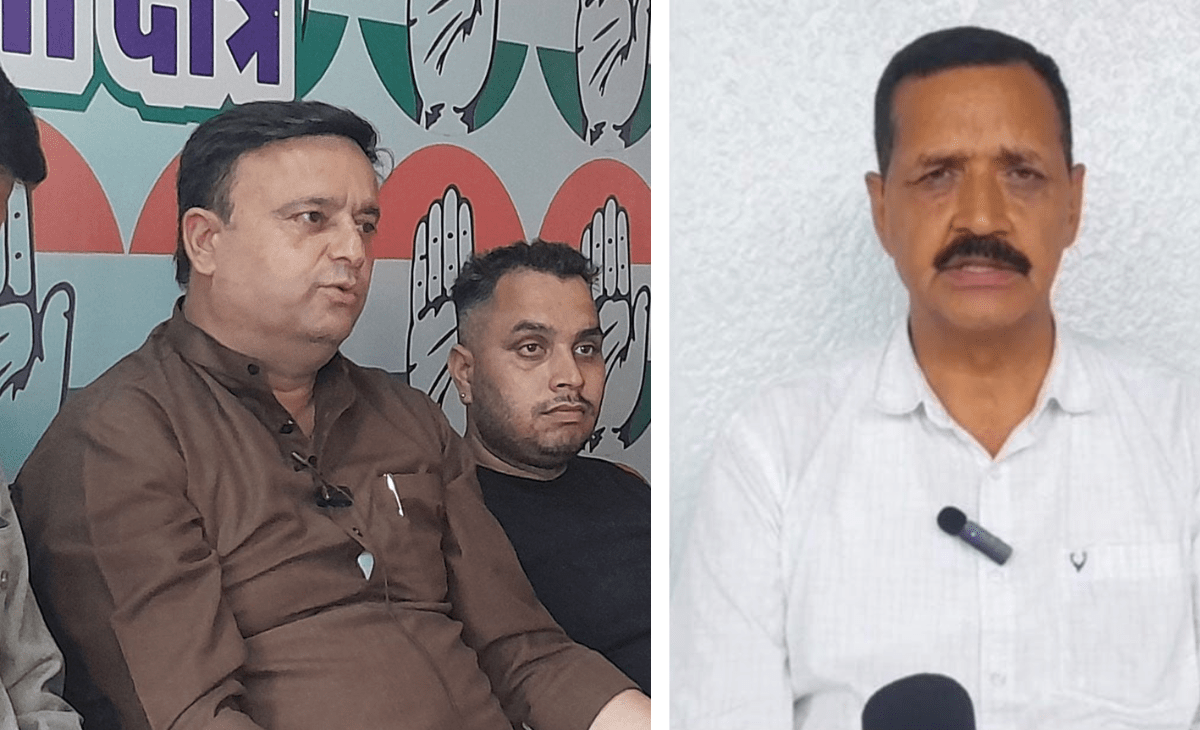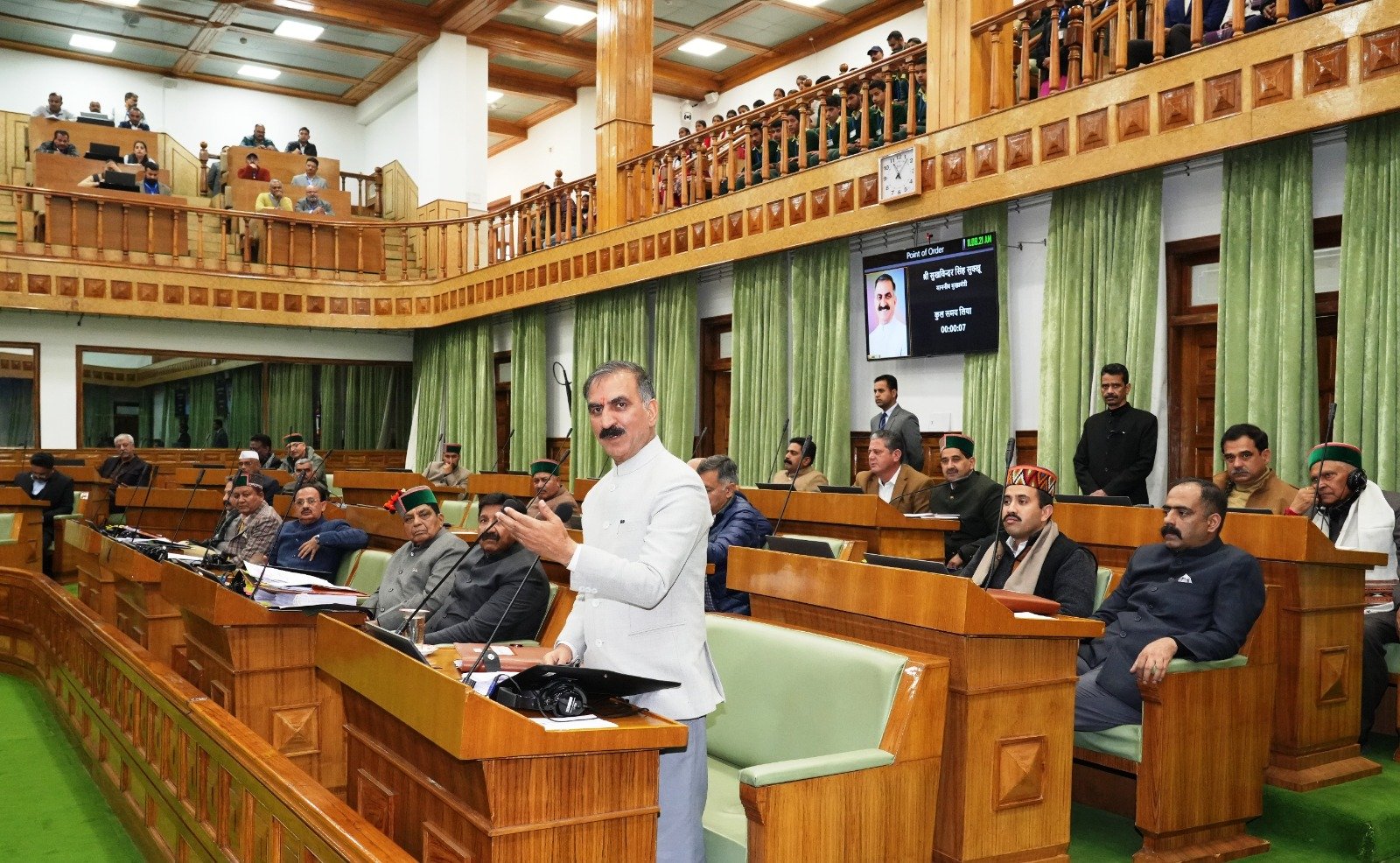Minister’s visit to disaster-hit Saraj triggers storm; BJP accuses him of insensitivity, Congress hits back, alleging political exploitation
Munish Sood
What began as a natural calamity in Himachal Pradesh has now snowballed into a full-blown political confrontation. Relief efforts in the disaster-affected Saraj region have ignited a war of words between the ruling Congress and opposition BJP, each accusing the other of exploiting tragedy for political gain.
The flashpoint emerged after Horticulture and Revenue Minister Jagat Singh Negi visited Saraj, 26 days after the disaster struck. What should have been a healing gesture turned into a political firestorm, marked by public protests, viral videos, and allegations of insensitivity, arrogance, and even conspiracy.
BJP’s Charge: “Minister Came to Add Salt to Wounds”
BJP’s Mandi District President Nihal Chand Sharma launched a scathing attack on Minister Jagat Singh Negi, accusing him of neglecting his core responsibility as the state’s Disaster Management head.
“The minister didn’t just arrive late—he came bearing a notification to shift the Forestry and Horticulture College from Thunag. That’s how he greeted the people in distress,” Sharma said.
Sharma alleged that Negi’s language and demeanor, both in Shimla and on ground, were hurtful to already grieving families. “The people were pleading with folded hands. Instead of compassion, they were met with contempt. The minister rubbed salt into their wounds, not balm,” he said.
He contrasted the minister’s visit with that of BJP’s Leader of the Opposition Jairam Thakur, claiming Thakur was the first to reach most disaster-hit regions—often on foot.
“From Kullu’s Naganwai and Dhalpur, to the fire-ravaged Tandi village and Rampur’s Samej—Jairam Thakur stood shoulder to shoulder with every victim,” Sharma asserted. “He arranged immediate relief and even took up rehabilitation matters directly with relevant ministers.”
The BJP also condemned what it described as the government’s “colonial-style response” to public protests, alleging that women protestors were manhandled and BJP workers were booked under “fabricated charges.”
Congress Hits Back: “BJP Politicising Pain, Orchestrating Drama”
In a swift counter, Indian National Congress spokesperson and IPMC Chairman Sanjeev Guleria defended the minister and accused the BJP of orchestrating the outrage for political mileage.
“Throwing shoes at a vehicle with the national flag and targeting a constitutional office-bearer is not public anger—it’s a premeditated act,” Guleria stated at a press conference in Mandi. “It’s not Himachali culture, and certainly not Saraj’s ethos.”
Guleria directly held BJP leaders responsible for the incident, suggesting the protests were “organized under the directions of Jairam Thakur.”
He dismissed BJP’s criticism of the government’s timing and intent, pointing to the prompt response by the Congress-led administration. “Chief Minister Sukhvinder Singh Sukhu conducted an aerial survey within 24 hours of the calamity. ₹60 lakh in immediate relief was announced, of which ₹45 lakh was earmarked for Saraj. An additional ₹55 lakh was released for property compensation,” he said.
Deputy Chief Minister Mukesh Agnihotri and PWD Minister Vikramaditya Singh were also deputed to coordinate ground relief work, Guleria added. He lauded the CM’s bipartisan approach, citing a high-level meeting with Leader of the Opposition Jairam Thakur, where the CM directed officials to incorporate Thakur’s suggestions.
College Relocation Adds to the Controversy
Another flashpoint has been the decision to shift the Horticulture and Forestry College from Thunag. BJP views it as an affront to local sentiments, while Congress calls it a necessary step for student safety.
“The college was built near a drainage channel, and the disaster affected three nearby homes,” Guleria said. “Ninety-three students have been relocated, and temporary academic arrangements are being made in Nachan.”
BJP, however, sees the move as poorly timed and symbolically insulting—especially since it coincided with the minister’s delayed visit to the region.
Relief Contributions and Political Optics
Taking the attack further, Guleria contrasted the “silence” of the BJP MP from the region with Congress leader Rahul Gandhi’s financial support.
“Rahul Gandhi has contributed ₹5 crore for disaster relief. Meanwhile, the BJP MP is nowhere to be seen and has offered no meaningful assistance,” he said.
On the BJP’s relief activities, Guleria raised concerns about distribution happening under party banners. “This is not the time for branding and banner politics. Human suffering must not be used for optics.”
Call for Unity Amid Division
Both sides, despite their aggressive posturing, claim to speak in the interest of the people. Guleria made an appeal to “rise above partisan politics,” warning that public frustration could turn into widespread disillusionment.
“If political games continue in the face of tragedy, the people of Himachal will not forgive us,” he warned.
On the other hand, BJP insists that accountability must be fixed. “This is not about politics,” said Sharma. “It’s about honoring public emotion, and holding those in power responsible.”
Public Sentiment Still Raw
As visuals of the minister’s interaction with locals continue to circulate online, emotions remain high. For many residents, the politics around disaster relief is adding insult to injury. Their urgent need—for shelter, food, and empathy—remains caught between party narratives and political calculations.
While both parties battle it out in press conferences, the real challenge lies on the ground: rebuilding lives, restoring faith, and making governance feel present again—when people need it the most.





